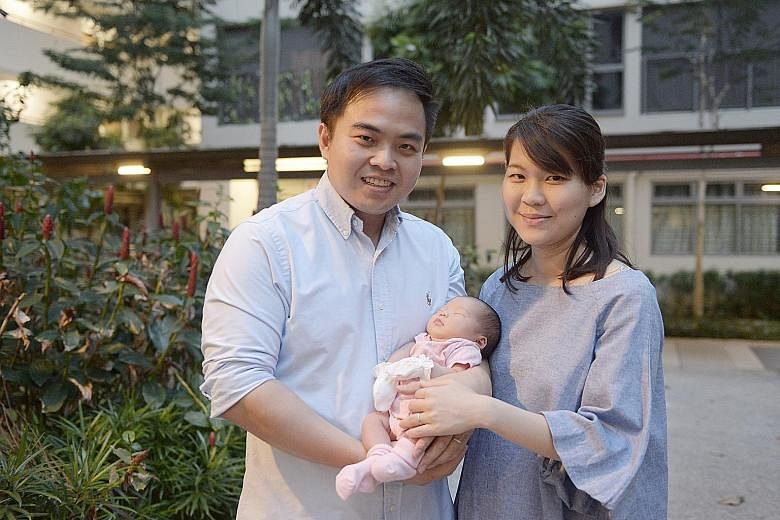From July, the public service will give an extra four weeks of unpaid infant-care leave per parent under a pilot scheme announced yesterday.
The leave is to be taken in the child's first year.
With this latest move, public servants and their spouses are guaranteed a total of six months of parental leave per couple.
This means that as long as one parent is a public servant, the couple can have up to 26 weeks of leave, or six months, between them.
The scheme is to help ease new parents back to regular work and better support them in the workplace, said Senior Minister of State Josephine Teo, who oversees population matters.
"Parents are happy to have more time to care for and bond with their infants, and fathers can also play a bigger role in raising their newborns, all while remaining in employment," she said.
The scheme follows recent leave policies, such as the mandatory two weeks of paternity leave and new four weeks of shared parental leave.
Mrs Teo, whose population unit comes under the Prime Minister's Office (PMO), explained during the debate on the PMO's budget the rationale for giving an extra four weeks of leave to new parents.
Although infant-care centres can take in two-month-old babies, most parents feel more confident when their babies are aged at least six months, she said.
Under the existing leave policies, a couple get 20 weeks of paid leave, and two weeks of unpaid leave, in the baby's first year.
This leaves a potential gap of four weeks, which the new scheme of unpaid leave hopes to fill.
Both men and women can apply for the new leave. Supervisors have to say "yes" to all applications, as long as reasonable notice is given.
The scheme will last three years for now, said Mrs Teo, urging companies to have similar leave policies. But she acknowledged challenges such as the difficulties some employers face in accommodating staff with childcare needs.
"Some parents also tell of the pushback they experience from co-workers. Extending parental leave can unwittingly be an added source of tension at the workplace," she said.
Public servant Linda Wee, 32, said she and her husband Roy Ng, 35, who also works in the public service, are looking for an infant-care centre near their home for their newborn girl Rheya. But many centres in the neighbourhood of Tampines MRT station are full.
"The extra four weeks of leave will come in useful while we wait for a space at a centre," said Ms Wee.
In her speech, Mrs Teo also gave an overview of what else the Government is doing to support young couples who want to have children.
It includes faster access to public housing, and more places in infant- care centres.
For parents who want their infants to be cared for at home, NTUC's Seed Institute, which trains early childcare educators, will introduce a course to teach maids how to care for infants. It has 100 places now.


